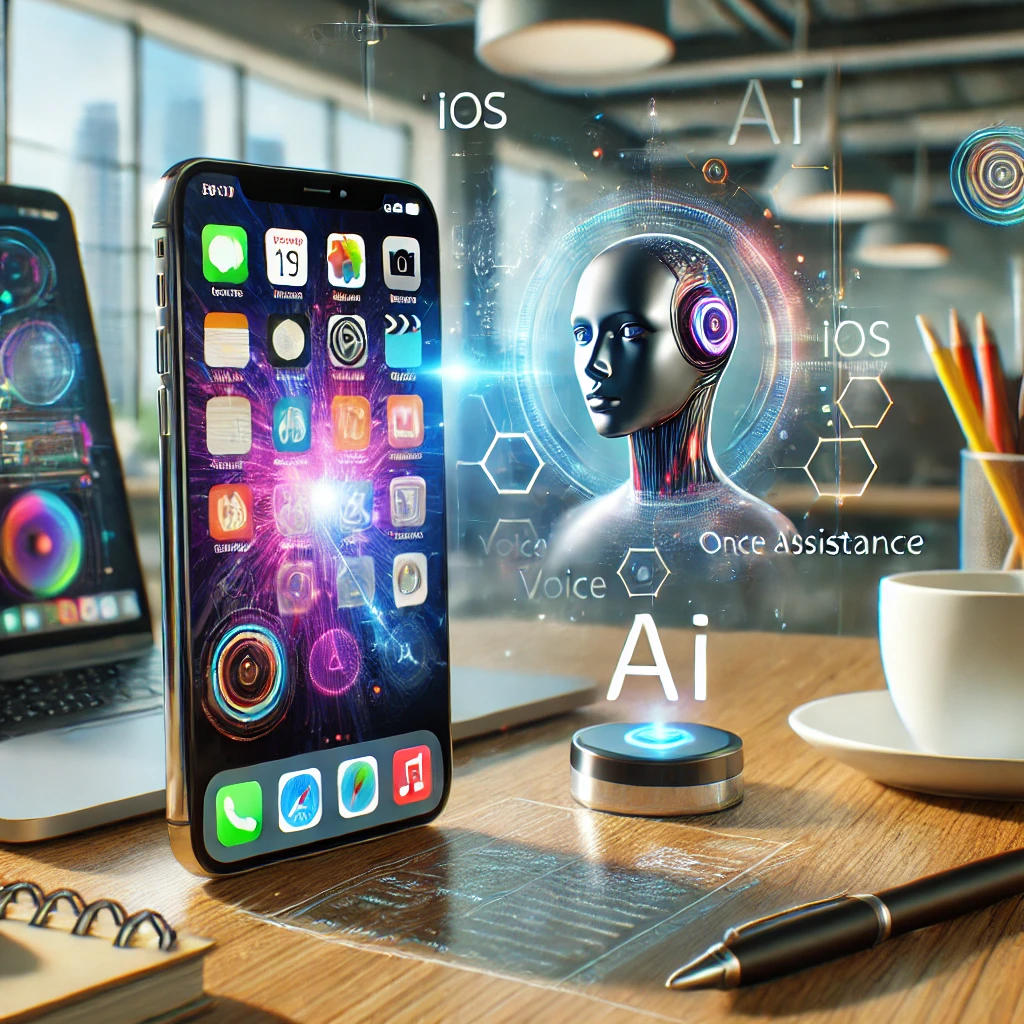
Apple has once again proven its dominance in the tech world as iPhone users adopt the latest iOS 18.1 at double the rate of its predecessor, iOS 17.1. This remarkable uptake highlights not only the anticipation surrounding new iOS releases but also the strength of Apple’s commitment to innovation, user experience, and security. Tim Cook, the CEO of Apple, expressed his enthusiasm for this milestone, indicating that the rapid adoption rate is a clear sign of user trust and satisfaction. In this article, we’ll explore the features that have made iOS 18.1 so popular, user reactions, and what this development means for future Apple updates.
The Popularity Surge: Understanding iOS 18.1’s Impact
Apple’s annual iOS updates often bring substantial changes, but iOS 18.1 has set a new benchmark for user engagement and satisfaction. Here’s a breakdown of why iOS 18.1 has captured the attention of so many iPhone users so quickly:
1. Real-Time Interactive Widgets The evolution of widgets has been a significant theme in Apple’s recent updates, and iOS 18.1 takes this feature to the next level. Unlike static widgets introduced in iOS 14, the new real-time interactive widgets allow users to interact directly from the home screen. This means users can check off items in their to-do list apps, control music playback, or even track live sports scores without opening the app.
This level of convenience has resonated strongly with users who crave efficiency in their day-to-day mobile interactions. Tech enthusiasts and productivity aficionados alike have praised this feature, noting how it simplifies multi-tasking and enhances user engagement with key apps.
2. AI-Driven Personalization iOS 18.1 leverages Apple’s advanced machine learning capabilities to introduce a more personalized user experience. The new adaptive algorithms analyze user habits to provide tailored app suggestions, adjust settings like screen brightness based on environmental conditions, and curate content based on preferences.
Apple’s emphasis on AI in iOS 18.1 is part of its broader push to make devices feel more intuitive and adaptive. By integrating machine learning that understands users’ preferences, Apple has created a mobile OS that feels uniquely tailored to each individual. This shift towards intelligent software design marks a significant step forward in how technology interacts with people, making daily tasks simpler and more streamlined.
3. Enhanced Battery Optimization One of the most common user complaints about smartphone operating systems is battery life. Apple’s development team took this feedback seriously with iOS 18.1, implementing improvements in how apps consume battery power and optimizing the background refresh processes. This update also includes an upgraded battery health monitoring system that provides more detailed insights into energy usage, allowing users to make informed decisions on how to manage their power consumption.
Feedback from early adopters has been overwhelmingly positive in this area. Many users report noticeable improvements in their device’s battery performance, particularly in older models. This enhancement is crucial, as it extends the usability of older iPhones, giving them new life and keeping Apple’s environmental initiatives in focus by promoting device longevity.
4. Advanced Security Features In an age where digital privacy and security are more critical than ever, Apple continues to prioritize user protection. iOS 18.1 includes an expanded suite of security features designed to keep user data safe from potential breaches. Among these are better app permission controls, more robust anti-tracking capabilities, and real-time notifications that inform users when an app accesses sensitive information such as location or camera data.
Tim Cook has been vocal about Apple’s stance on privacy, stating, “At Apple, privacy is a fundamental human right. It’s why we design products with the highest security standards, ensuring that user data stays in the hands of the user.” These words have translated into action with iOS 18.1, where users have access to a newly designed privacy dashboard that presents a detailed overview of data access by installed apps.
Comparative Analysis: iOS 18.1 vs. iOS 17.1 To fully appreciate why iOS 18.1 has been adopted so rapidly, it’s essential to compare it with iOS 17.1. While iOS 17.1 was an important release that introduced notable features like enhanced multitasking and some UI updates, it did not have the groundbreaking elements that define iOS 18.1. The leap from iOS 17.1 to iOS 18.1 showcases Apple’s ability to not just listen to user feedback but to anticipate their needs and innovate beyond expectations.
User Reactions and Community Sentiment The reaction to iOS 18.1 has been widespread and overwhelmingly positive. A scan through social media platforms like Twitter and Reddit reveals a wealth of user testimonials praising the latest update. A tech reviewer on Twitter wrote, “The new interactive widgets in iOS 18.1 are game-changers. It’s as if Apple knew exactly what we needed and delivered!” Another user on Reddit added, “Battery life on my iPhone 11 has significantly improved after updating to iOS 18.1. I didn’t think an update could make such a difference, but here we are.”
These anecdotes are backed by data from user engagement reports. Analytics firms have shown that within just two weeks of release, iOS 18.1 had reached an adoption rate of 40% across eligible devices. In comparison, iOS 17.1 reached only 20% in the same time frame. This adoption pattern signals that users are not just updating out of habit but are genuinely eager to experience the improvements that iOS 18.1 offers.
Tim Cook’s Leadership and Vision Under Tim Cook’s leadership, Apple has steadily focused on refining its products to enhance user satisfaction while maintaining high standards of innovation. Cook’s commitment to continuous improvement has been evident in the way iOS updates have evolved over the years. His approach emphasizes listening to user feedback, investing in forward-thinking technologies, and ensuring that Apple products are synonymous with quality and reliability.
In a recent press release, Cook stated, “The response to iOS 18.1 has been phenomenal. This update reaffirms our dedication to providing users with the best possible mobile experience, and it’s clear from their response that we’re on the right path.” His statement encapsulates the essence of Apple’s current strategy: focus on incremental improvements that deliver meaningful results.
The Future of iOS and Beyond The success of iOS 18.1 sets a strong precedent for future updates. With user expectations higher than ever, Apple will likely continue to build on the innovations introduced in iOS 18.1. This could mean even deeper integrations of AI, further advancements in interactive home screen functionalities, and more refined approaches to battery and performance management.
Anticipated Features for iOS 19 Tech experts and enthusiasts have already begun speculating about what Apple might introduce in its next major update. Here are a few features that could potentially make their way into iOS 19:
- Augmented Reality (AR) Integration: With Apple’s ongoing investment in AR technology, it’s likely that iOS 19 could see more immersive AR experiences, potentially linked with Apple Vision Pro.
- Expanded Multi-Device Connectivity: iOS 19 might offer enhanced cross-device features, allowing iPhones to seamlessly interact with other Apple products such as the iPad, Mac, and the upcoming Vision Pro.
- Customizable App Icons and Themes: While iOS has been slow to offer deep customization options, the success of interactive widgets could encourage Apple to explore more personalization options.
A Word on Apple’s Privacy Stance Tim Cook’s steadfast belief in privacy as a human right has positioned Apple as a leader in the realm of user data protection. This focus has not only enhanced Apple’s reputation but also reinforced customer loyalty. iOS 18.1’s privacy dashboard, which provides transparency on how apps use data, is a testament to Cook’s vision. This feature empowers users with knowledge and control, enabling them to manage their data-sharing practices effectively.
Apple’s Ecosystem and the Role of iOS Updates Apple’s ecosystem is tightly interconnected, with each product enhancing the experience of the others. The rapid adoption of iOS 18.1 suggests that users appreciate the cohesion and interoperability that Apple provides. An iPhone running iOS 18.1 can seamlessly communicate with an Apple Watch, Mac, or iPad, allowing tasks to be transferred effortlessly between devices. This ecosystem approach strengthens user loyalty, as many users who invest in one Apple product often become long-term supporters, integrating multiple devices into their daily routines.
Developer Insights: What iOS 18.1 Means for App Creators For developers, iOS 18.1 presents new opportunities and challenges. The enhanced interactive widget functionality means that apps now need to consider how they can offer valuable interactions from the home screen. This can lead to increased app usage and user retention but also requires developers to adapt quickly to stay competitive.
Moreover, Apple’s expanded privacy features mean that developers must prioritize transparency and user consent. Apps that adapt well to these changes and provide clear value while respecting privacy are more likely to succeed in an increasingly security-conscious market.


